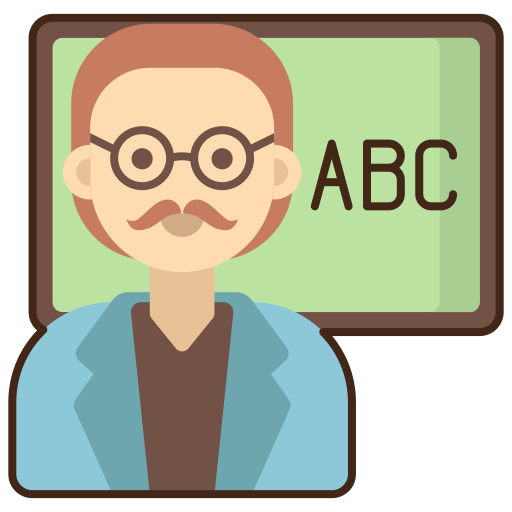AI in Writing: Prioritizing Process & Historical Thinking

AI integration in writing education requires careful consideration. Prioritizing the writing process, historical thinking, and context is crucial. Focus on developing strong writing practices before AI use.
Among my core beliefs concerning exactly how we’ve been instructing writing is that the artefacts we ask trainees to create and the way we examine them frequently in fact stops students from participating in the kinds of experiences that aid them find out to create.
The AHA Concepts and AI Literacy
The AHA concepts are all fair sufficient and usually agreeable, suggesting for AI literacy, plan transparency and a valuing of historic know-how over LLM outputs. Without unloading what we suggest by “historic reasoning,” and just how we determine when this reasoning is present, we’re stuck in dead end of unpredictability.
My area is composing and English, not history, however here I believe this is a misstep, one that I assume is common and one that should be resolved if we’re mosting likely to have one of the most effective conversations possible about where generative AI belongs (or not) in our self-controls.
I put much more supply in proof of a developing writing practice than I do in evaluating the written artifact at the end of a creating experience because of this. Also my use of words “experience” signals what I believe is most valuable when it involves composing: the process over the item.
Process vs. Product in Writing
I wince at some people who seem to be placing themselves as AI gurus, eager to tell us the future and, in so doing, recognize what we ought to be doing in today. This is mosting likely to be a trouble that needs to be continuously worked.
Given the speed at which technologies are transforming, and the several neighborhood considerations to be considered, the AHA will certainly not attempt to offer detailed or concrete regulations for all circumstances of AI use in the classroom. Instead, we offer a set of directing principles that have emerged from recurring conversations within the committee, and input from AHA members via a survey and conference sessions.”
Context and Learning Environment
I believe this is certainly correct due to the fact that mentor and discovering are inherently, unavoidably context-dependent, occasionally to the smallest variables. I have actually used this instance often times, but as somebody that often taught the same training course 3 or even 4 times a day, I could find differences based on what appears like the tiniest differences, consisting of the time of day a specific section met. There is a strange (but also fantastic) human chemistry at play when we deal with learning as a communal act– as I believe we should– but this means it is exceptionally difficult to integrate training, as we have actually seen from generations of stopped working attempts to do so.
Others that placed even more supply in the artefacts themselves see great potential for LLM use to assist trainees produce “much better” versions of those artefacts by providing support in various components of the procedure. This is a certainly affordable perspective. If we have a globe that judges trainees on outcomes and these tools assist them create better outputs (and quicker), why would we wall surface them off from these tools?
In contrast, I claim that there is something essentially human– as I say at publication length in Greater than Words– about analysis and writing, so I am much more mindful about embracing this innovation. I’m concerned that we may lose experiences that are in fact crucial except surviving school, but also for making it through life.
Caution over offering prescriptions is more than required. As a person that currently spends a lot of time trying to assist others think through the difficulties in their particular training contexts, I’m in advance regarding the reality that I have very few if any kind of global responses and rather provide some methods of thinking about and damaging down a trouble that might lead the roadway to proceed.
From what I can tell, the document makes no particular insurance claims as to what this requires, though it has many indicated activities that presumably are element parts of historical thinking: research, evaluation, synthesis, etc …
When? Why? Suppose the most vital thing about an analysis, as an aspect of developing their historic reasoning practice, is for pupils to experience the disorientation of tackling a challenging message, and we want optimal rubbing in the process?
Values and Historical Thinking
To my mind, what is missing is missing out on underlying values that worths thinking historic meant to implied. Possibly these are concurred upon and go without claiming, but my experience in the area of creating suggests that this is unlikely.
This appears in an appendix that tries to reveal what an AI policy may resemble, listing a task, whether AI usage can be appropriate and after that the conditions of approval. But once again, the evil one is in the information.
Context is everything, and we can’t talk context if we don’t know what we genuinely worth, not just at the degree of a self-control, or even a course, however at the level of the experience itself. For every course-related activities, we need to ask:
When usage is appropriate and under what problems, I’m guessing a lot of faculty reading this trust themselves to make these judgments concerning. That’s the big-picture target. What do we require to understand and what do we require to be able to do to come to that state?
To my mind, what is missing is missing out on underlying values that historical thinking is meant to suggested. Probably these are agreed upon and go without stating, but my experience in the area of writing recommends that this is not likely. Others who put even more supply in the artifacts themselves see terrific prospective for LLM use to help students generate “much better” versions of those artefacts by providing assistance in different components of the process. I’m presuming the majority of faculty analysis this depend on themselves to make these judgments about when use is appropriate and under what conditions.
I have actually used this example lots of times, yet as somebody that frequently showed the very same training course 3 or also four times a day, I could discover variances based on what appears like the smallest distinctions, including the time of day a certain area met. From what I can tell, the paper makes no certain insurance claims as to what this involves, though it has many indicated activities that presumably are component parts of historical reasoning: study, analysis, synthesis, etc …
Building a Strong Writing Foundation
My response to these questions, particularly as they concern writing programs, entail extremely little big language design usage until a strong structure in a creating technique is established. Essentially, we desire trainees to be able to utilize these devices in the way we likely view our own abilities to use them successfully without compromising our worths or the quality of our job.
1 AI in education2 AI Literacy
3 Context-Dependent Learning
4 critical analysis
5 Historical Thinking
6 writing process
« Trump’s Visa Crackdown on International Students: Terrorism ClaimsStrategy, Empathy & Education: A Career Journey »
